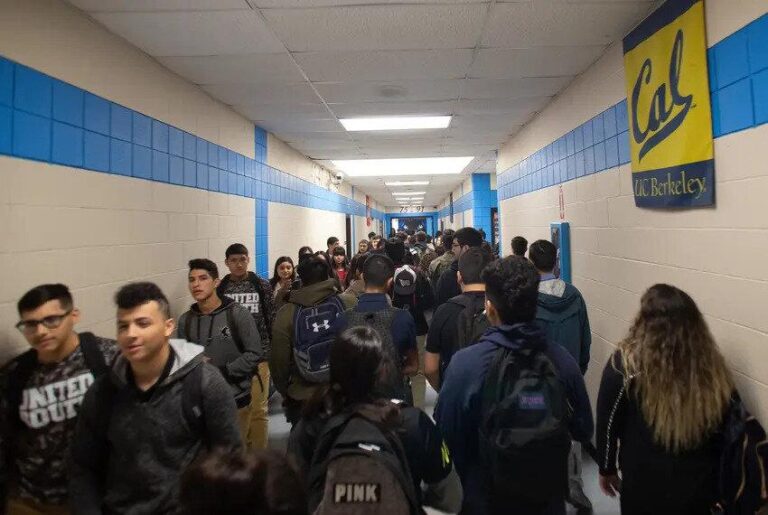Reevaluating Discipline Policies for Young Learners in Texas Schools
Texas legislators are currently reviewing modifications to the state’s disciplinary framework for early elementary students, potentially easing restrictions on suspensions and expulsions for children in kindergarten through second grade. This legislative initiative seeks to relax existing prohibitions that limit the removal of very young students from classrooms, igniting a complex discussion about safeguarding school environments while upholding the educational rights of young children. As this debate progresses, educators, families, and advocacy organizations are closely monitoring the potential consequences for Texas’s youngest learners and the broader school community.
Revised Discipline Guidelines: What Changes Are on the Horizon?
The proposed legislative adjustments suggest a shift toward granting school districts increased authority to suspend or expel students as young as kindergarteners for behavioral infractions. Previously, Texas maintained stringent restrictions on exclusionary discipline for early elementary grades to protect children’s developmental needs. Proponents argue that these changes will empower educators to better manage classroom behavior and enhance safety. However, critics caution that such policies may disproportionately impact minority students and those with special needs, potentially exacerbating existing inequities.
Anticipated outcomes of the proposed policy changes include:
- Rise in disciplinary actions: More frequent suspensions and expulsions among early-grade students could reshape disciplinary trends statewide.
- Reduced emphasis on alternative strategies: Teachers may have fewer resources or incentives to implement non-exclusionary interventions.
- Heightened equity concerns: Marginalized student populations might face increased disciplinary measures, deepening disparities.
| Grade Range | Current Policy | Proposed Adjustment |
|---|---|---|
| Kindergarten to 2nd Grade | Suspensions largely prohibited | Conditional allowance of suspensions |
| 3rd to 5th Grade | Suspensions permitted with specific guidelines | Expanded discretion for school administrators |
Voices of Concern: Educators and Advocates Respond
Teachers, child development specialists, and advocacy groups have voiced significant worries regarding the potential rollback of protections against suspending or expelling young children. They emphasize that such disciplinary measures can disproportionately affect vulnerable populations, including children from low-income backgrounds, students of color, and those with disabilities. Research consistently links early exclusion from school with adverse outcomes such as higher dropout rates and increased encounters with the juvenile justice system.
Key issues highlighted by stakeholders include:
- Interruption of foundational learning: Removing children during critical developmental stages can impede social-emotional growth and academic progress.
- Disproportionate enforcement: Data reveal that minority and special education students face higher rates of exclusionary discipline.
- Lack of supportive alternatives: Many educators report insufficient training and resources to implement positive behavioral interventions effectively.
| Group | Primary Concern | Proposed Remedy |
|---|---|---|
| Educators | Managing classroom disruptions without adequate training | Comprehensive professional development focused on trauma-informed care |
| Advocacy Organizations | Racial and disability-based disciplinary disparities | Enhanced transparency and accountability measures |
| Parents | Emotional and psychological impact on children | Expanded access to counseling and mental health support |
Consequences for Early Childhood Education and Student Health
Loosening restrictions on disciplinary actions for young children in Texas’s early education programs raises serious concerns about the potential developmental and emotional toll. Early childhood education is pivotal in establishing the groundwork for lifelong learning, social competence, and emotional resilience. Increased use of suspensions or expulsions at this stage could foster instability and anxiety, undermining children’s academic trajectories and social integration.
Experts warn that these disciplinary shifts may disproportionately affect children from disadvantaged backgrounds, including those with special needs or from economically challenged families. The stigma and exclusion associated with early disciplinary actions can lead to diminished school engagement and long-term educational setbacks.
- Emotional distress: Early removal from school environments can trigger feelings of alienation and insecurity.
- Equity implications: Minority and disabled students are at heightened risk of experiencing exclusionary discipline.
- Interrupted skill development: Frequent suspensions limit opportunities for acquiring essential early learning competencies.
| Area of Impact | Potential Outcome |
|---|---|
| Student Wellbeing | Elevated stress levels and behavioral challenges |
| Academic Progress | Delayed readiness and widening achievement gaps |
| Community Confidence | Parental concerns regarding fairness and safety in schools |
Strategies for Harmonizing Safety with Supportive Learning Environments
Policymakers must navigate the complex task of ensuring safe school settings while nurturing an inclusive atmosphere conducive to early childhood development. Experts advocate for a comprehensive approach that combines clear behavioral expectations with robust support mechanisms. Integrating restorative justice frameworks can foster dialogue and conflict resolution, reducing reliance on exclusionary discipline. Additionally, expanding mental health services and early behavioral interventions can preemptively address challenges before they escalate.
Recommended actions to achieve this balance include:
- Specialized training for educators in trauma-sensitive and culturally responsive practices
- Collaborative creation of personalized behavioral support plans for students
- Ongoing data analysis to evaluate disciplinary trends and refine strategies
- Active community involvement to build trust and shared accountability
| Initiative | Anticipated Benefit | Projected Timeline |
|---|---|---|
| Trauma-Informed Educator Training | Enhanced relationships between students and teachers | Within 6 months |
| Individualized Behavioral Support Plans | Reduction in behavioral incidents | Ongoing implementation |
| Restorative Justice Programs | Decrease in suspension rates | Within 12 months |
| Expansion of Mental Health Services | Improved overall student wellbeing | Within 1 year |
Looking Ahead: The Future of Discipline in Texas Early Education
As Texas lawmakers deliberate these proposed disciplinary reforms, the stakes for the state’s youngest students are considerable. Striking an effective balance between maintaining safe, orderly classrooms and safeguarding the developmental needs and rights of young children is paramount. The final decisions will shape how Texas schools address behavioral challenges among early learners—potentially setting a precedent for either more lenient or more stringent disciplinary approaches in the years to come.







